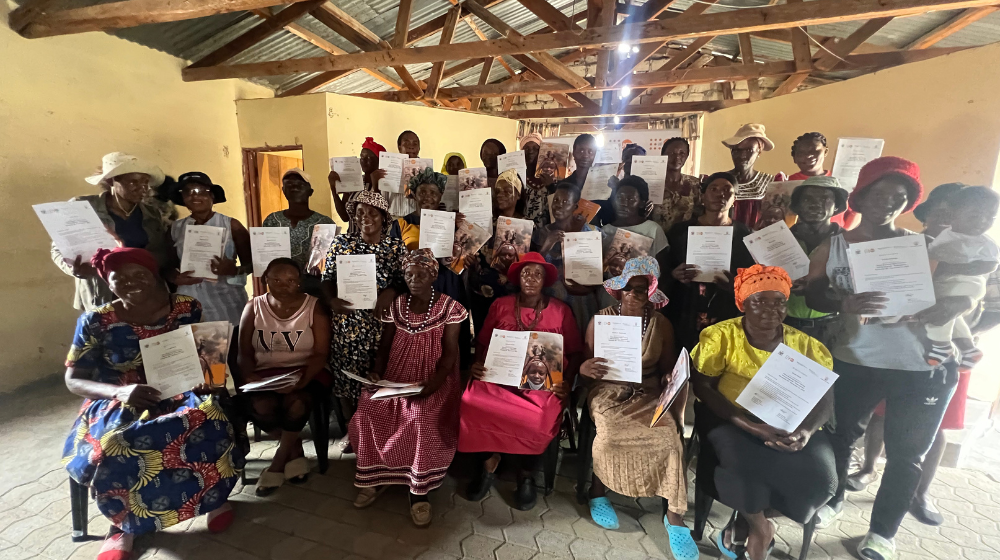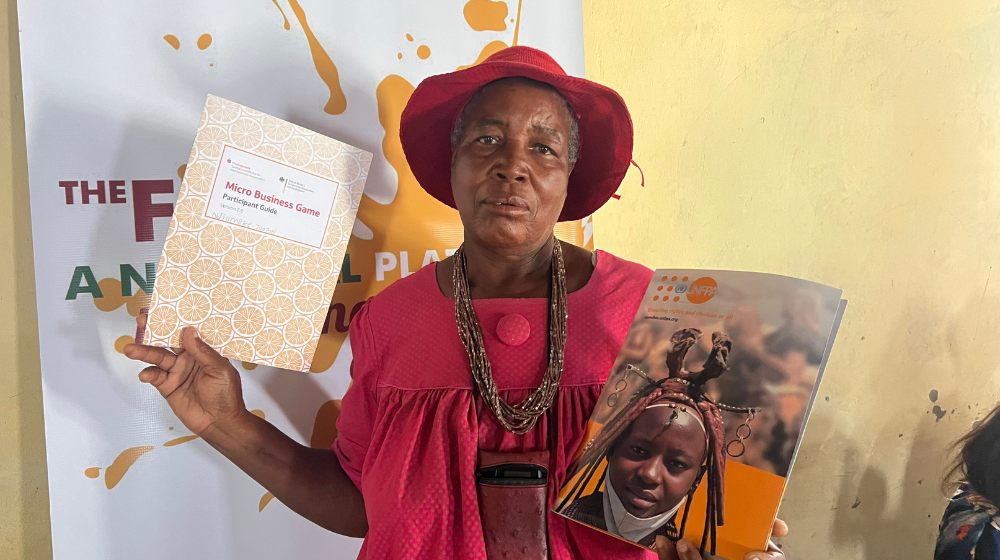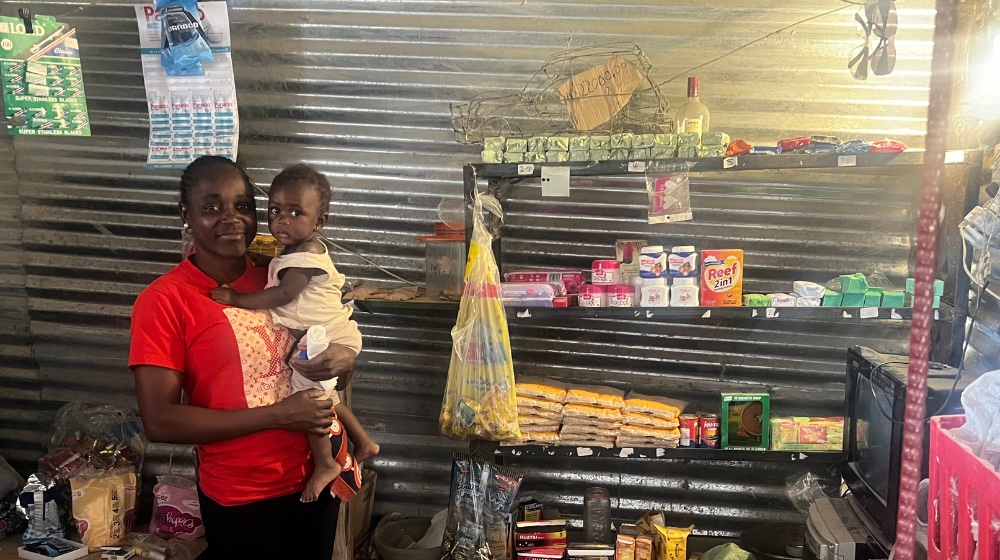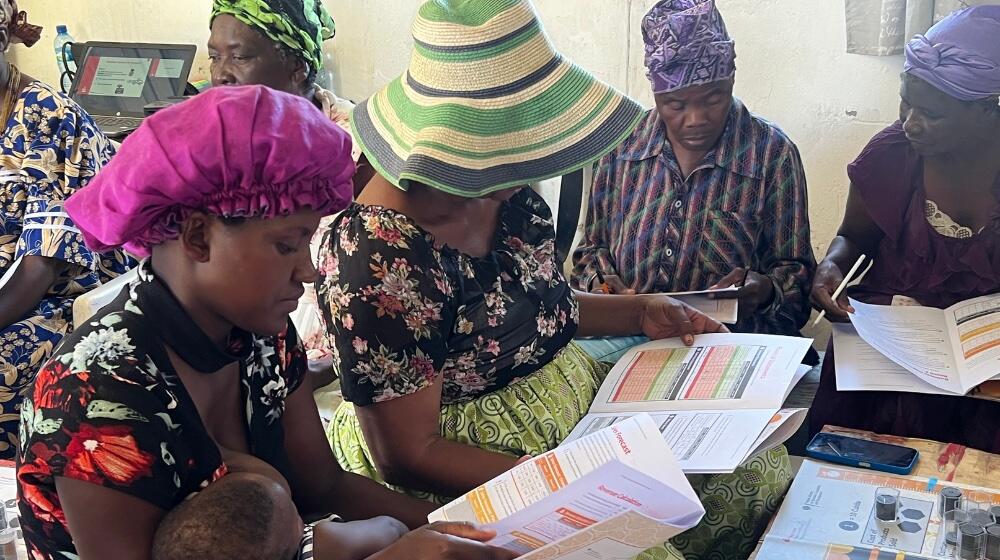
OSHIKOTO, Namibia − In a collaborative effort, the United Nations Population Fund (UNFPA), Financial Literacy Initiative (FLI), Kongalend Financial Services Rural, and the Society of Family Health (SFH) have launched the 'EmpowerWELL' initiative. This programme specifically targets the empowerment of women and youths in reproductive-age groups residing in rural areas, including vulnerable and marginalised communities across Namibia.
The initiative encompasses sexual reproductive health services, gender-based violence services and response, and crucially, access to financial services. By combining mentorship and financial literacy, the programme aims to address not only health-related challenges but also diminish the economic and societal disparities prevalent in these regions as well as create resilient communities.
Commencing on 6 November 2023 at Omutsegwonime village in Omuthiya, the programme has since reached Okaonda and Onailongo village in the Ohangwena region on 9 November and concluded the pilot phase in Omupunda village in the Oshana region, attracting up to 130 participants. The strategic rollout focuses on areas with high prevailing rates of the sexual reproductive health indicators, limited access to essential services and high economic inequalities.
The programme is part of UNFPA’s Strategic Investment Facility (SIF), which aims to establish an investment facility that strengthens domestic, international, and development finance resource mobilisation, leveraging innovative finance for UNFPA's transformative results, ending unmet need for family planning, ending preventable maternal deaths, ending gender-based violence and harmful practices, and ending sexual transmission of HIV (regional priority).

Namibia faces severe challenges with high youth unemployment (46.1%) and pervasive multidimensional poverty (43%), particularly in rural areas (59%) and female-headed households (46%). Disparities also persist in education and health services, varying by region, location, and gender, as highlighted in the Namibia Multidimensional Poverty Index Report 2021. To address these challenges, targeted multi-sectoral investments in the youthful population are crucial for Namibia to unlock the demographic dividend and foster sustainable development.
Community members, like Claudia Nghishidimbwa from Okaonde village, have expressed gratitude for the mobile clinic services, emphasising the project's significance in overcoming health service barriers in remote areas.
Most people have been sick in their homestead, and the distance to nearby health facilities discourages most community members from seeking health services.
“Most people have been sick in their homestead, and the distance to nearby health facilities discourages most community members from seeking health services,” says Nghishidimbwa.
During a one-and-a-half-week programme, high demand was experienced in the uptake of modern family planning (implants) and HIV-AIDS services, increasing the demand for financial services and new subscribers.
Participants have not only enhanced their financial literacy and accessed health services but have also been motivated to explore business ventures for income generation and livelihood improvement through the financial services facilities of Kongalend Financial Services supported by UNFPA Namibia under the EmpowerWell pilot project. Individuals like Tuhafeni Shiningwali (20), an omlette maker from Omutsegwonime village, and Indileni Erasmus (31), a young mother and tuck shop owner, credit the mentorship programme and literacy training for providing valuable skills and hope for business growth.
“I have learned how to save money, which will help me expand my merchandise and grow my business,” says Erasmus.

Sofia Nambahu, UNFPA Namibia's strategic investment coordinator (also Project Coordinator of the EmpowerWell Pilot Project), underscores the significance of gender-based investment coupled with financial education and long-life learning. She emphasises the combination fosters financial autonomy, acting as a crucial tool in navigating and eradicating societal challenges. “The impact of such empowerment extends beyond individuals, resonating within communities, fostering resilience, and driving sustainable development.”
Ndilimeke Taapopi, chairperson of the Mekololo Letu community project at Onailonga village, says she is grateful for the financial literacy training that has taught her to better manage the income generated from her business for investment and expansion.
"I’m truly thankful for the invaluable financial literacy training provided by the EmpowerWell initiative. It has not only enhanced my ability to manage funds generated from my business but has empowered me to strategically invest and expand for the betterment of my family and community," she says.


